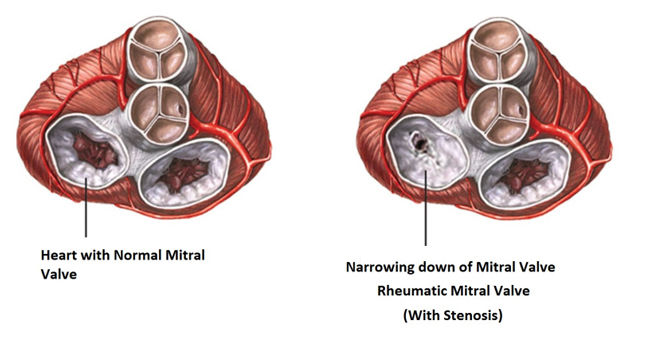Rheumatic Fever & Heart Valve Disease: 8 Important Facts for Patients
Written By: Adam Pick, Patient Advocate, Author & Website Founder
Page Last Updated: May 10, 2025
Many patients in our community have had questions about the link between Rheumatic Fever (RF) and Heart Valve Disease. The patients, their families and friends want to know the answers to questions such as, “What causes RF?”, “Is it common?”, “How does it cause heart valve disease?” and “What can I do to prevent it?”

What Is Rheumatic Fever?
Rheumatic Fever (RF) is an inflammatory disease that can develop as a result of inadequately treated strep throat (and in rare cases, scarlet fever). Strep throat is caused by an infection of streptococcus bacteria, and as you probably already know, strep is common and easily treatable with penicillin.
If left untreated, however, strep bacteria can develop into Rheumatic Fever. Our immune system’s response to RF causes an inflammatory condition in the body which can result in ongoing, chronic and permanent heart valve damage known as Rheumatic Heart Disease (RHD). If a lack of medical attention continues, RHD can further damage your heart and even lead to heart failure. All of that from strep throat? Well, yes, but there is a lot more to it.
Who Is At Risk?
According to the Texas Heart Institute, fewer than 0.3% of people who have strep throat will also get RF, so it’s rare. According to the Cleveland Clinic, RF can occur at any age, yet Rheumatic Fever is most common among children and adolescents aged 5 to 15.
Also per the Texas Heart Institute, doctors think that a weakened immune system may make some people more likely to get RF. And, although antibiotic medicines have reduced the number of cases of RF, there are still thousands of reported cases in the U.S. and other developed nations. RF, however, remains far more common in many developing nations where there may be unsanitary conditions or a lack of medical treatment.
According to the Mayo Clinic, if a child receives prompt treatment with an antibiotic to eliminate strep and takes all medication as prescribed, there's little chance of developing Rheumatic Fever. According to Johns Hopkins Medicine, children who get repeated strep throat infections that aren't treated – or not treated completely – are at the most risk for RF.
RHD affects around half of all people who have had an acute RF, according to Very Well Health. According to the Mayo Clinic, most cases are diagnosed 10 to 20 years after contracting RF, and those who have had multiple bouts of RF are at greatest risk.
What Are The Causes?
Rheumatic Fever is not an infection itself, but rather your body’s response as a result of an untreated strep infection. According to the Mayo Clinic, the link between a strep infection and RF isn't exactly clear, but it appears that the bacteria “tricks” the immune system. This is because the strep bacteria contains a protein similar to one found in certain tissues of the body.
When your body senses the lingering strep infection, immune system cells that would normally target the bacteria sends antibodies to fight the infection, and the antibodies attack the body's own tissues of your heart, joints, skin and central nervous system instead. This immune system reaction can trigger inflammation of the heart, either on the surface of the heart (pericarditis), within the heart (endocarditis), or the heart muscle itself (myocarditis). This can last a few weeks to several months and, in some cases – according to the Cleveland Clinic – can cause eventual scarring and other long-term complications.
What Are The Symptoms?
According to the Texas Heart Institute, symptoms of RF usually begin 1 to 6 weeks after a strep throat infection. RF signs and symptoms include:
- Fever
- Joint pain or swelling in your wrists, elbows, knees, or ankles
- Small bumps under the skin over your elbows or knees (called nodules)
- A raised, red rash on your chest, back, or stomach
- Stomach pain or feeling less hungry
- Fatigue, weakness, shortness of breath
Remember, RHD usually occurs 10 to 20 years after the original occurrence of RF per the Mayo Clinic, and – depending on the degree of valve damage – may include RHD symptoms such as:
- Chest pain and discomfort
- Heart murmur
- Jerky, uncontrollable body movements – most often in the hands, feet and face
What Are The Complications?
According to the Mayo Clinic, untreated Rheumatic Fever can cause permanent damage to the heart valves and even lead to heart failure.
More than half of the time, RF leads to scarring of the heart’s valves. Per the Cleveland Clinic, scarring can narrow the valve – most commonly the mitral valve – and make it harder for the valve to open or close properly. Mitral Stenosis causing your heart to work harder to pump blood normally. This valve damage can lead to RHD. Rheumatic Heart Disease is permanent damage to the heart caused by Rheumatic Fever. Problems are most common with the mitral valve, but the other valves can be affected.
According to the Mayo Clinic, the result can be:
- Valve stenosis. Narrowing of the valve decreases blood flow.
- Valve regurgitation. Leaking in the valve allows blood to flow in the wrong direction.
- Damage to heart muscle. Weakening of the heart muscle, affecting its ability to pump.
- Damage to the mitral valve, which can cause problems with the heart later in life such as atrial fibrillation (an irregular and chaotic beating of the upper chambers of the heart) and heart failure (an inability of the heart to pump enough blood to the body).
As Johns Hopkins Medicine suggests, other complications of RHD include:
- Bacterial endocarditis. An infection of the inner lining of the heart, and may occur when RF has damaged the heart valves.
- Complications of pregnancy and delivery. Women with RHD should discuss their condition with their doctor before getting pregnant.
- Ruptured heart valve. This is a medical emergency that must be treated with surgery to replace or repair the heart valve.
How Are RF & RHD Diagnosed?
According to the Texas Heart Institute, your doctor will begin by doing a throat culture to find out if you have a strep infection. Then, your doctor will use a stethoscope to listen to your heart. He or she will also look for nodules on your joints. Sometimes, blood tests, chest x-rays, or an electrocardiogram (ECG or EKG) may be needed for a more definite diagnosis.
RHD is diagnosed – per Johns Hopkins Medicine – by evaluating you to hear if you have a murmur or rub that may be heard during a routine physical exam. The murmur is caused by the blood leaking around the damages valve. The rub is caused when the inflamed heart tissues move or rub against each other.
Along with a complete medical history and physical exam, tests used to diagnose RHD may include:
- Echocardiogram (echo). Shows damage to the valve flaps, backflow of blood through a leaky valve, fluid around the heart, and heart enlargement.
- Electrocardiogram (ECG). Shows abnormal rhythms (arrhythmias or dysrhythmias) and can sometimes detect heart muscle damage.
- Chest X-ray. Checks your lungs and see if your heart is enlarged.
- Cardiac MRI. Gets a more precise look at the heart valves and heart muscle.
- Blood test. Looks for infection and inflammation.
Can Rheumatic Fever Be Prevented?
Remember, RF is most often the result of inadequate treatment of strep throat. The only way to prevent RF is to treat strep throat infections promptly with a full course of antibiotics such as penicillin. If you have strep throat, take all of the antibiotics your doctor prescribes, even if you feel better before the medicine is gone.
According to the Texas Heart Institute, even if your sore throat does not come back, without the antibiotics in your bloodstream, the streptococcal bacteria can still multiply and affect your heart.
Also you should always tell your doctor or dentist about your history of RF before a surgical or dental procedure.
What Is The Treatment?
According to Texas Heart Institute, RF must be treated right away. If you have a sore throat that lasts longer than 2 days, or if you have a fever and headache with your sore throat, you should see your doctor for a throat culture. Even if you do not have a sore throat but have a fever and a skin rash, this could also mean strep.
If your strep infection leads to RF, your doctor may prescribe anti-inflammatory medicines to reduce the swelling in your body’s tissues. How long you take them depends on your age, the number of attacks you’ve had, and the severity of your symptoms.
According to Johns Hopkins Medicine, people who have had acute RF are often given daily or monthly antibiotic treatments, possibly for life, to prevent recurrent infections and lower the risk of further heart damage. To reduce inflammation, aspirin, steroids, or non-steroidal medicines may be given. If you have had RF, it is important to prevent future episodes. If you have had acute RF, undergo an annual physical exam to check for a possible heart murmur or any other heart abnormality.
If RF has led to RHD or damage to your heart valves, your doctor may recommend that you take antibiotic medicines continuously for many years.
If you are diagnosed with RHD, it is important to have your condition monitored regularly with an echocardiogram and other diagnostic tools. As heart valve problems tend to worsen over time, these exams can help determine if and when valve replacement surgery is needed to replace or repair a badly damaged valve.
So the bottom line is that minor infections – such as strep – can lead to a far worse diagnosis if left untreated. I hope that answered your questions about Rheumatic Fever and the link to Heart Valve Disease.
You May Also Like
- Bacterial Endocarditis: What Should Patients Know?
- What is a Heart Murmur?
- Echocardiograms: How to Diagnose Heart Valve Disease?
- Heart Valve Replacement Surgery
- Meet Patients with Rheumatic Fever in our Community
References:
Cleveland Clinic. https://my.clevelandclinic.org/health/diseases/17600-valve-disease-types
Very Well Health. https://www.verywellhealth.com/rheumatic-heart-disease-1746054
National Heart, Lung, and Blood Institute. https://www.nhlbi.nih.gov/health-topics/heart-valve-disease
Mayo Clinic https://www.mayoclinic.org/diseases-conditions/rheumatic-fever/symptoms-causes/syc-20354588
Johns Hopkins Medicine. https://www.hopkinsmedicine.org/healthlibrary/conditions/cardiovascular_diseases/rheumatic_heart_disease_85,P00239
Texas Heart Institute. https://www.texasheart.org/heart-health/heart-information-center/topics/rheumatic-fever/





